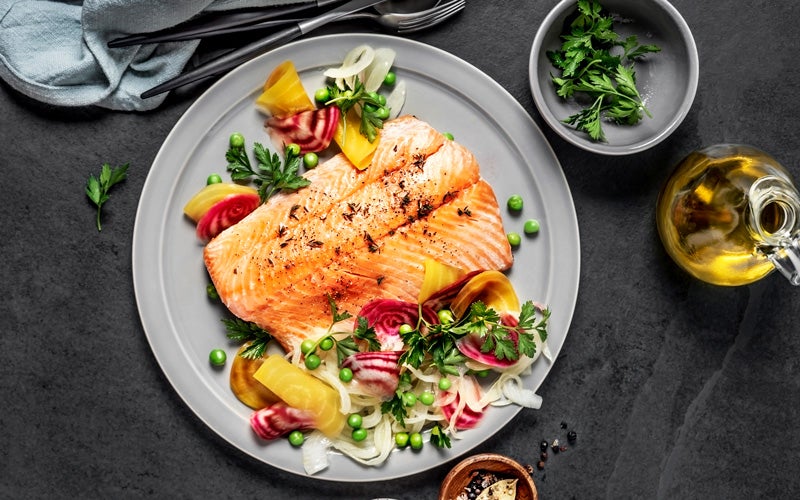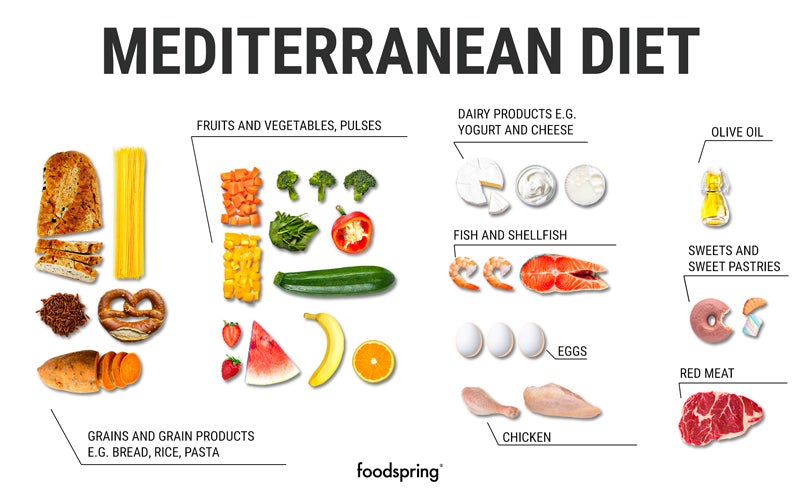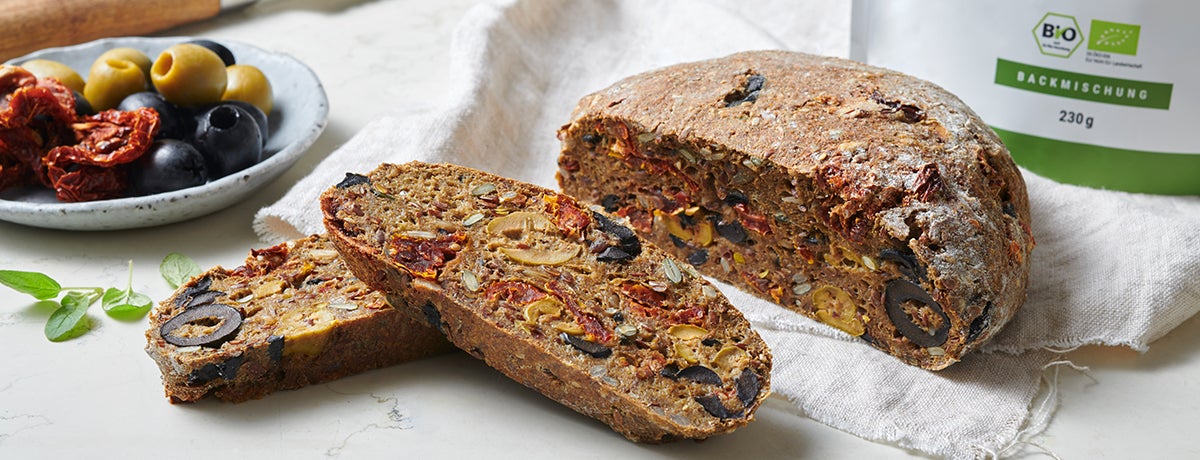Delicious reasons to try the Mediterranean diet
 ©Claudia Totir
©Claudia Totir
If you search for a diet that promises you’ll live longer and healthier, you’ll get endless pages of results. But if you narrow them down to include only diets that are well-balanced, many of the suggestions disappear. One diet that repeatedly shows up on the first page is the so-called Mediterranean diet. If you haven’t heard of it yet, you might be curious about the characteristics of this type of diet, and whether it delivers what it promises. Let’s take a closer look.
What does Mediterranean mean?
Before we talk about the foods that officially fall into the category of Mediterranean diet, let’s take a look at the origin of the diet. As the name already suggests, this diet got its start in the south of Europe, more precisely on the island of Crete. The cuisine of southern Italy has also lent a strong influence to the Mediterranean style of cuisine.
What does the Mediterranean cuisine include?
In contrast to the High Carb Low Fat Diet, which is aimed at reducing fat intake, the Mediterranean diet is characterized by a high fat intake. You read that right! In fact, fats account for up to 40% of the daily calorie intake. Another big difference compared to other diets is the ratio of omega-6 to omega-3 fatty acids, which is ten times lower than in the classic western diet. The main source: extra-virgin olive oil.
If you take a close look at the cuisines of southern Europe, you’ll also find fresh fruit and vegetables, whole grains, and fish. Legumes, nuts, and seeds also form a foundation of the Mediterranean diet pyramid. And unlike some other diets’ alcohol policies, the Mediterranean diet doesn’t rule out a glass of red wine every evening.
You might wonder which of the foods you should eat, and how often. Rightly so. Because as with most diets, this one has its own recommended macro distribution. Our infographic below will give you a good sense of where your macros should be coming from.
A clear advantage of the Mediterranean diet is that there aren’t any rules specifying or forbidding which foods to combine at which meal. There’s even space on the menu for some of our bestselling products. Instant Oats for breakfast? That’s just the beginning.

Dairy products, such as yogurt or feta cheese, are incorporated into everyday life in moderate amounts. What won’t you see on the meal plan? Red meat and sugary processed foods. And it’s clear why: high consumption of these foods has been shown to negatively affect health, particularly the cardiovascular system.
How healthy is the Mediterranean diet?
Learning a bit more about the foods that are typically eaten in the Mediterranean helps explain why the diet is generally considered healthy.
Take a closer look at the typical range of foods in the Mediterranean diet, and you’ll quickly see why it’s considered a healthy option.
- The Mediterranean diet provides comparably high amounts of unsaturated fatty acids – you remember olive oil, which is used generously when making salads, pasta, and fish dishes. These healthy fats support the cardiovascular system.
- Nuts and seeds are a source of even more healthy unsaturated fats, especially omega-3s. They can keep blood pressure balanced and reduce the risk of blood clotting.
- We all know how important fruits and vegetables are for a healthy diet. And they not only contain numerous vitamins and minerals, but also can have an anti-inflammatory effect.
- Fresh vegetables such as tomatoes, peppers, and eggplants are packed with fiber.
- Last but not least: regularly eating fish. Just like high-quality oil, nuts, and seeds, fatty fish contains valuable fatty acids.
Losing weight with Mediterranean cuisine
Numerous scientific studies prove there’s a connection between a traditional Mediterranean diet and both a low rate of chronic diseases and a higher life expectancy. But can you lose weight with the Mediterranean diet? The simple answer is yes. Because – as we’ve already mentioned – the kinds of foods you’re eating are fundamentally healthy. Losing weight while you follow the Mediterranean diet works just like with any other diet, meaning you still need a daily calorie deficit. The best way to reach your personal goal is to keep healthy eating habits while getting lots of exercise and enough sleep. Always keep an eye on your daily calorie requirements and deficit. Our ingenious calorie calculator helps you to figure out your calorie requirements in just a few minutes. And if you find yourself hitting a weight loss plateau, here are five things that might be holding you back.
Does the concept of the Mediterranean diet appeal to you? If you are healthy and already incorporate exercise in your lifestyle, you can likely get started on this diet with a clear mind.
Not sure if the diet suits your personal health risk factors? Talk about it with your doctor first. Otherwise, a diet rich in fresh fruit and vegetables and good fats is an optimal basis for your goals.
Recipes inspired by the Mediterranean
Inspired by the Mediterranean and perfected by us, here are a pair of recipes for your personal fitness cookbook. All you need for our first recipe are five ingredients. Get ready to transform green or black olives, tomatoes, and capers into a high-protein olive bread.
Protein Olive Bread

©foodspringget the recipe
Once you’ve baked the protein bread, you can easily upgrade this snack: Top the bread with fresh tomatoes and juicy ham. Looking for a Mediterranean-friendly butter substitute? Drizzle with olive oil instead.
Italian Pasta Salad
What makes our Italian pasta salad a perfect fitness recipe? High protein pasta made from chickpeas. We mix it in a bowl with mozzarella, tomatoes, and basil – how much more Mediterranean can you get?

In the south of Europe, fresh herbs are indispensable in the kitchen. Basil, rosemary, and parsley are some staples, and if you are interested in what makes these tasty greens so healthy, click through to our article on herbs.
Summary
The Mediterranean diet has a good reputation. And rightly so. Here are some of the important points to remember:
- The Mediterranean diet has its origins in southern Europe.
- It is rich in juicy fruit and wholesome cereals, whole grains, high-quality olive oil and good fish. Dairy products are only consumed in small quantities.
- Avoid processed foods such as sweets and red meat.
- The diet contains many important vitamins and minerals, and is particularly rich in unsaturated fatty acids, secondary plant substances, and fiber.
- It can have proven positive effects on heart health and is said to have a life-prolonging effect.
- The Mediterranean diet is generally well-suited for most, including those who are overweight. Anyone with chronic heart disease should consult their doctor before changing their diet.
Sources for this article
We at foodspring use only high-quality sources, including peer-reviewed studies, to support the facts within our articles. Read our editorial policy to learn more about how we fact-check and keep our content accurate, reliable, and trustworthy.
- Estruch, R. et al. (2013): Primary Prevention of Cardiovascular Disease with a Mediterranean Diet, in: The New England Journal of Medicine.





























